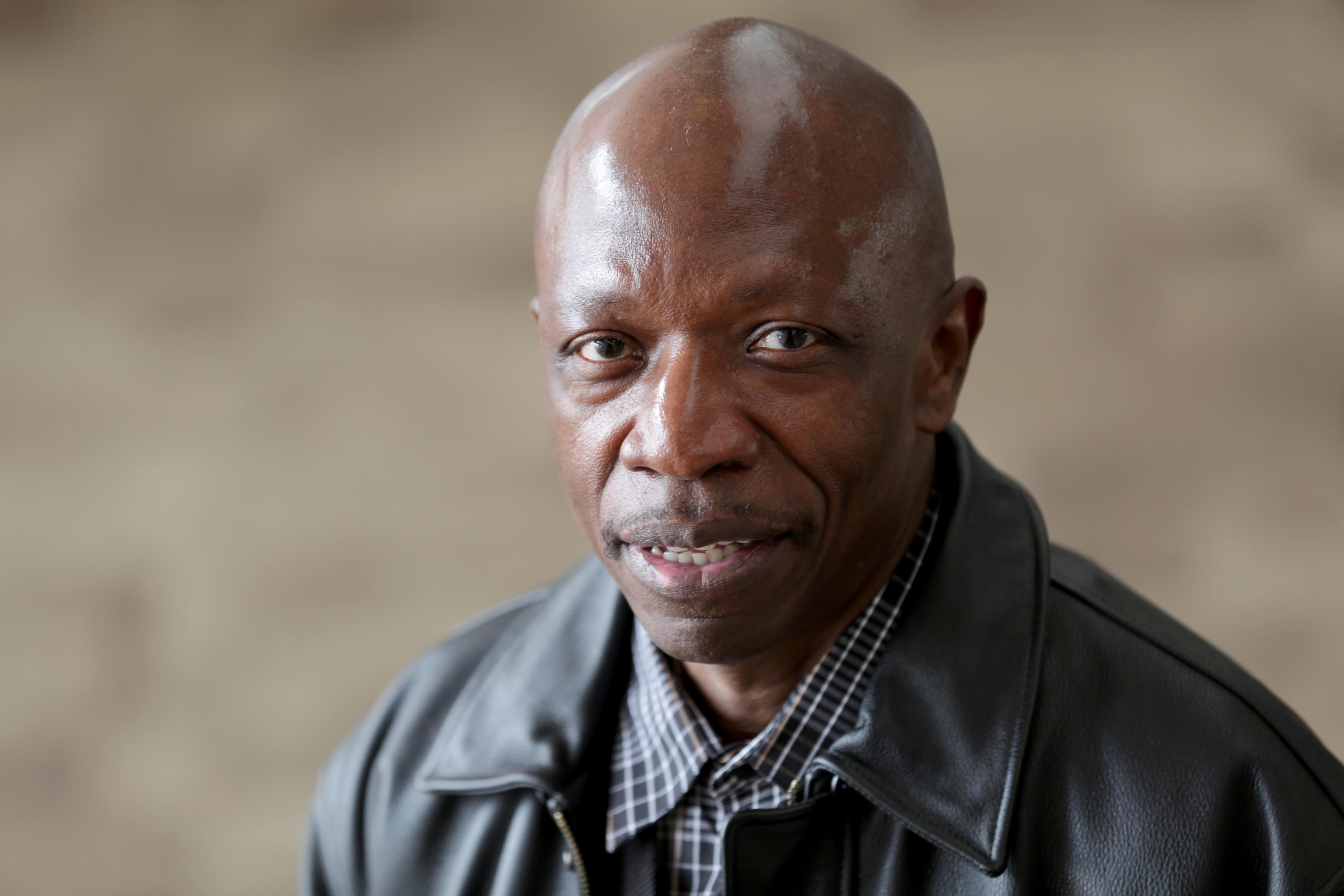
Clarence Moses-EL says he told anyone who would listen while he was behind bars about his innocence. After nearly three decades in Colorado prison, last month he was released when a judge granted him a new trial. The judge said her decision was based in part on the confession of another man to the crime of sexual assault.
Now, Moses-EL and his legal team are waiting to see if Denver District Attorney Mitch Morrissey with retry the case. Moses-EL and his attorney, Eric Klein, spoke with Colorado Matters host Ryan Warner.
Moses-EL on getting used to "new" technology, like cell phones:
"I was leaving the phone just about everywhere. ... One day, I went to an appointment and didn't have my phone. I was just lost. I was like, 'man, do I ask someone if I can use their phone?' Because you don't see pay phones around anymore."
Moses-EL on what made prison bearable:
"I tried to learn everything. I didn't care if it was about an ant and how ants structured their community. I wanted to know that because you can learn from anything. You can learn from an ant, you can learn from nature itself. I was on a journey and a quest to just learn."
Klein on Moses-EL's release:
"It's a difficult thing, a motion for new trial based on newly discovered evidence. We never take it for granted. I think, it's just the strength of the evidence pointing to Mr. Moses-EL's innocence is evident in the judge's order itself."
Klein on a looming new trial:
"The district attorney's office has said they are still evaluating the case and still may dismiss it. And we're hopeful they will see the evidence for what it is and dismiss it soon. And frankly, we are rather disappointed it hasn't happened yet."
Moses-EL on possibility of trial:
"First, my hope is that it will be dropped. I'm looking at that particular angle first. Secondly, if they intend to go to trial, then I'm ready to go to trial. Like I've said from the very beginning, I didn't commit the crime. If that's their choice, I'm ready to go."
Moses-EL on learning evidence was destroyed, after he raised $1,000 for DNA testing:
"I'm smiling now, but at the time I was far away from a smile. I felt let down by the system to hear that the evidence was destroyed. [...] It blew me away, because of all that work I put into raising the money. The majority of it came from inmates that heard my story. I was never for a moment not talking about my case to anybody."
Klein on seeking compensation for wrongful imprisonment:
"Right now our focus is on the criminal case and getting this from hanging over Mr. Moses-EL's head. Once that's gone, then we'll definitely look into that."
Moses-EL on avoiding feelings of rage:
"If I would let myself become consumed by anger and frustration, and especially on a daily basis, I don't think I'd be here at this radio station talking. Because I would spiral down into behavior and conduct that goes against the grain of being civil. Because in prison, people that become frustrated -- they act it out and it topples that individual. And me, by standing in the shadows and observing this about human behavior, I said, 'I wasn't going there. Not me.' "








